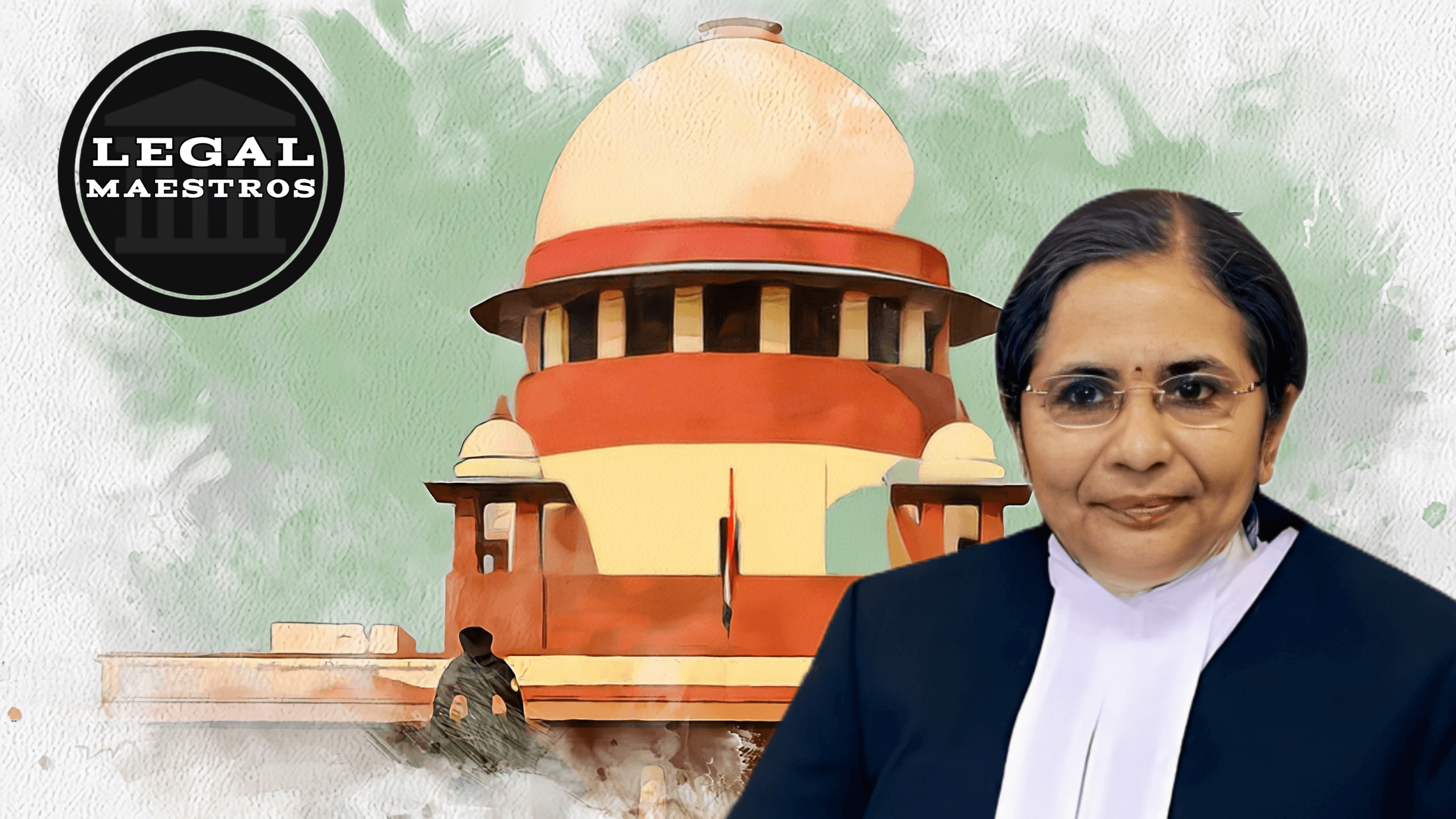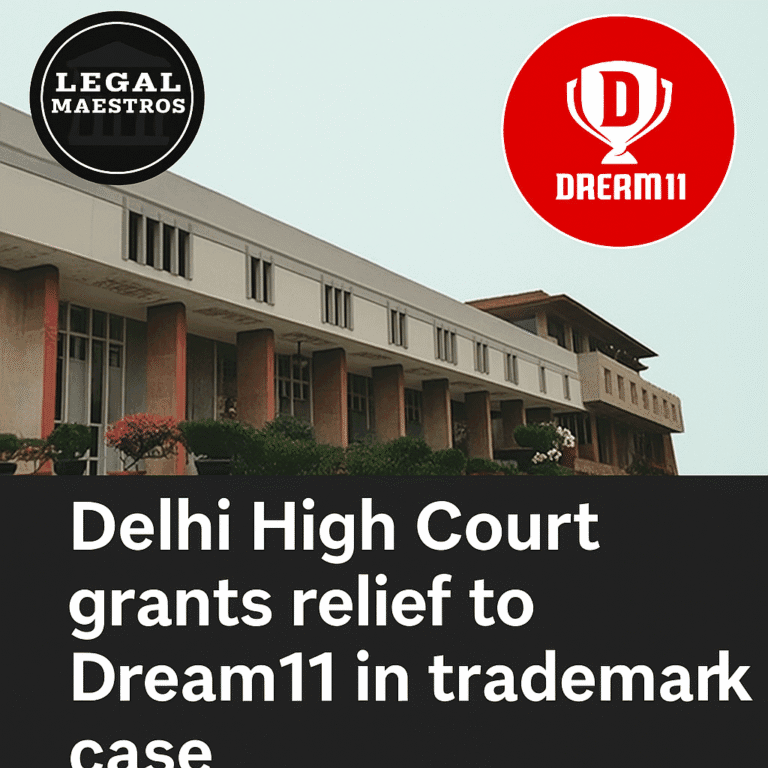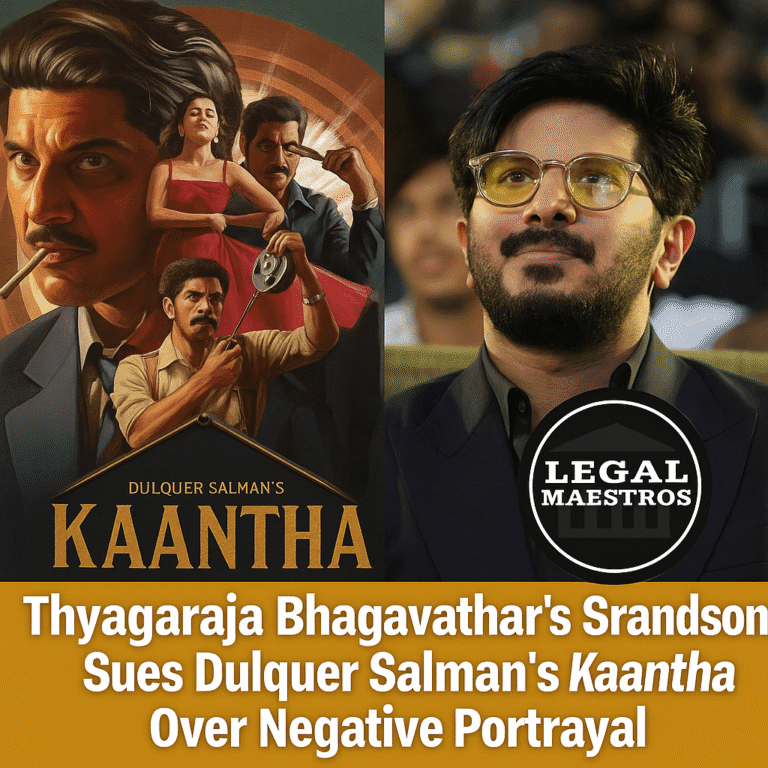
In a comprehensive decision that was handed down in April 2025, the Supreme Court of India addressed a significant legal issue that was pertaining to the interpretation of Section 167(2) of the Code of Criminal Procedure (CrPC).
An accused person’s rights under the statutory default bail provision were at the center of the case State (National Capital Territory of Delhi) v. Rajeev Sharma. This provision applies in situations where the charge sheet is not filed within the allotted amount of time.
An important matter was resolved by the ruling, which was authored by Justice Bela M. Trivedi and concurred by Justice Prasanna B. Varale. The topic was whether or not an offense that carries a maximum sentence of more than 10 years but does not specify a minimum period falls within the 90-day or 60-day limit under Section 167(2).
For any queries or to publish an article or post or advertisement on our platform, do call at +91 6377460764 or email us at contact@legalmaestros.com.
A Concise Review of the Situation
In accordance with Sections 3, 4, and 5 of the Official Secrets Act, 1923, as well as Section 120B of the Indian Penal Code, Rajeev Sharma, who is a journalist by trade, was taken into custody on September 14, 2020 by the Special Cell of the Delhi Police.
Espionage and the dissemination of confidential information were two of the worst allegations that were implicated in the allegations. According to the allegation made by the prosecution, Sharma was discovered to be in possession of confidential documents and was reportedly in communication with intelligence organizations from other countries.
In the aftermath of Sharma’s arrest, the Chief Metropolitan Magistrate and the Sessions Court have denied his requests for bail several times.
For any queries or to publish an article or post or advertisement on our platform, do call at +91 6377460764 or email us at contact@legalmaestros.com.
Sharma submitted a request for statutory bail in accordance with Section 167(2) of the Criminal Procedure Code after sixty days had passed without a charge sheet being filed. In the beginning, this one was likewise disregarded. On the other hand, he was granted bail after appealing his case to the Delhi High Court. Following this, the state turned to the Supreme Court in an effort to challenge this order.
The Contentious Legal Matter Before the Court
Under the proviso to Section 167(2) of the Criminal Procedure Code, the Supreme Court was tasked with determining whether or not the accused was eligible for default bail. To be more specific,
it investigated whether the sixty-day rule or the ninety-day rule was applicable in situations when the maximum sentence provided by the law is greater than 10 years, but there is no reference of a minimum punishment. The phrase “imprisonment for a term not less than ten years” was the central point of contention in this case.
For any queries or to publish an article or post or advertisement on our platform, do call at +91 6377460764 or email us at contact@legalmaestros.com.
Acquiring Knowledge of Section 167(2) of the Criminal Procedure Code
One of the safeguards against extended imprisonment without charges is provided under section 167(2) of the Criminal Procedure Code. It stipulates that in the event that the investigation is not finished and the charge sheet is not submitted within the stated time frame:
In the case of offenses that carry a sentence of death, life imprisonment, or imprisonment for a term of not less than 10 years, the sentence is ninety days.
For any and all other offenses, sixty days
Following the expiration of these periods, the accused is eligible to get what is referred to as “default bail,” assuming that they are prepared to post bail.
For any queries or to publish an article or post or advertisement on our platform, do call at +91 6377460764 or email us at contact@legalmaestros.com.
In the event where an offense prescribes a high maximum punishment but does not specify a minimum term, confusion is likely to develop. In circumstances like this, the courts have reached different conclusions regarding whether or not the 90-day period should be applicable.
What are the alleged offenses committed by Sharma?
There are major violations of the Official Secrets Act, specifically sections 3 and 4. For the offenses of espionage and possessing secret documents, Section 3 stipulates a maximum sentence of fourteen years in prison.
Nevertheless, the provision does not make any mention of a minimum sentence of imprisonment. In a similar vein, Section 5 addresses the issue of improperly communicating information and stipulates a maximum punishment of three years.
For any queries or to publish an article or post or advertisement on our platform, do call at +91 6377460764 or email us at contact@legalmaestros.com.
Due to the fact that the statute did not include a minimum term, the Delhi Police considered the case to be within the 90-day period and continued to hold the individual in custody. On the other hand, the High Court decided that the sixty-day rule was applicable and granted Sharma relief from his arrest.
Regarding the Supreme Court’s Evaluation
The Supreme Court made reference to its earlier decision in Rakesh Kumar Paul v. State of Assam, which was made by a three-judge bench.
In that case, the court ruled that the phrase “not less than ten years” indicates that a minimum period of imprisonment must be specified provided. There is no way that a statute may be classified as falling into the 90-day category if it simply sets a maximum punishment.
For any queries or to publish an article or post or advertisement on our platform, do call at +91 6377460764 or email us at contact@legalmaestros.com.
In the case of Rakesh Kumar Paul, the Supreme Court explained that the phrase “not less than” is used on purpose and must be construed as referring to offenses for which the minimum sentence is set at ten years or more.
On the other hand, if an offense just indicates that incarceration may stretch up to ten or fourteen years without naming a minimum, then it is considered to be something that fits under the sixty-day category.
The court also cited the case of M. Ravindran v. Directorate of Revenue Intelligence, which reinforced this interpretation and came to the conclusion that the accused must be granted the benefit of default bail after sixty days, unless the offense carries a minimum term of 10 years.
For any queries or to publish an article or post or advertisement on our platform, do call at +91 6377460764 or email us at contact@legalmaestros.com.
Using this well-established understanding, the court came to the conclusion that Sharma’s case did not qualify for the additional 90-day timeframe. Therefore, in accordance with Section 167(2), he was eligible for default bail because no charge sheet was submitted during the sixty-day period.
Under the terms of the default bail, the accused’s rights
The court stressed that the ability to default bail is not only a procedural right but rather a substantive right with significant implications.
After the specified time limit has passed and the accused person has indicated that they are willing to post bail, their prolonged incarceration is considered to be unlawful. It is not possible for the prosecution to violate this right by hastily filing a charge sheet after the period has passed but before the bail is granted.
For any queries or to publish an article or post or advertisement on our platform, do call at +91 6377460764 or email us at contact@legalmaestros.com.
It was brought to the attention of the judges that Sharma had claimed this privilege in a timely manner and was willing to post bail. Because of this, his release was constitutional, and the order of the High Court did not require any interference.
Addressing the Arguments Advanced by the State
The state contended that Sharma should not be given bail on technical grounds because he was detained for a severe offense that violated national security and so should not be released on bail.
This line of reasoning was categorically disagreed with by the Court. It was stated that the severity of allegations alone is not sufficient grounds for suspending an individual’s personal liberty. Even in situations involving national security, legal safeguards are also applicable, and the criminal court system cannot allow for indefinite incarceration without charges being brought against the individual.
For any queries or to publish an article or post or advertisement on our platform, do call at +91 6377460764 or email us at contact@legalmaestros.com.
The state further argued that the case was complicated and required additional time for investigation because of this complexity. On the other hand, the Court emphasized that Section 167(2) already provides an extended time of ninety days for instances that of an exceedingly serious nature. It is not possible for the prosecution to make a claim for an extension by implication in situations where that limit is not legally relevant.
Verdict and Instructions in Final Form
Rajeev Sharma was granted default bail by the High Court, and the Supreme Court supported the high court’s decision. The appeal that was submitted by the State of Delhi could not be upheld. On the other hand, the Court ordered that the trial court should move forward with the process of framing charges and should conduct the trial as quickly as possible.
A reiteration was made that the granting of bail does not constitute an acquittal of the accused, and that the trial must be finally concluded on the basis of the merits.
For any queries or to publish an article or post or advertisement on our platform, do call at +91 6377460764 or email us at contact@legalmaestros.com.
Relevance of the Decision in Question
The significance of constitutional safeguards in the operation of the criminal justice system is brought home by this ruling, which serves as an important reminder. Even when dealing with cases that involve serious claims such as espionage, it is impossible to overlook the importance of legal procedure and individual rights.
The decision reaffirms the fundamental premise that personal liberty is a fundamental right, as outlined in Article 21 of the Constitution, and highlights the fact that preventative detention that extends beyond the authorized time frame is unlawful.
In addition, the decision resolves a long-standing ambiguity in bail law by establishing that the default bail duration is limited to sixty days, unless a law expressly stipulates that a minimum punishment of ten years is required.
For any queries or to publish an article or post or advertisement on our platform, do call at +91 6377460764 or email us at contact@legalmaestros.com.
The case of State (National Capital Territory of Delhi) v. Rajeev Sharma, which was decided by the Supreme Court, resolves a significant part of bail jurisprudence. By doing so, it demonstrates that the ability to default bail is not merely a matter of formality but rather a fundamental legal protection.
It is because of Justice Bela M. Trivedi’s clear interpretation that the law is implemented consistently and is not abused in order to keep people detained without charge for an extended period of time. Within the framework of the criminal justice system, this decision will establish a precedent that is essential to the maintenance of due process and the protection of individual liberties.








1 thought on “Justice Trivedi’s Ruling on Default Bail in Rajeev Sharma Case: When 60 Days Are Enough”